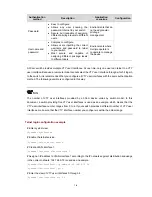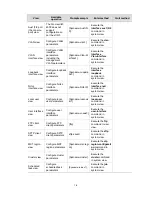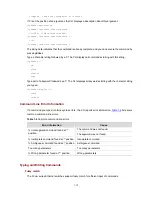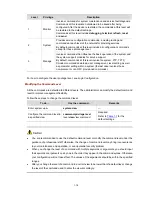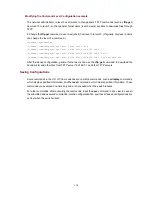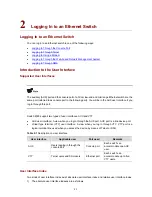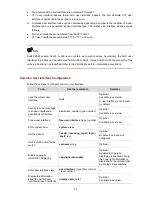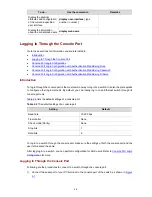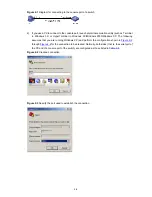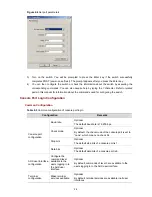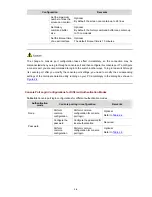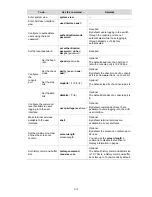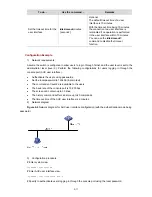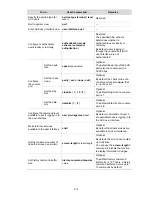
Synchronous Information Output
Synchronous information output refers to the feature that if your input is interrupted by system output,
then after the completion of system output the system displays a command line prompt and your input
so far, and you can continue your operations from where you were stopped.
Follow these steps to enable synchronous information output:
To do…
Use the command…
Remarks
Enter system view
system-view
—
Enable synchronous
information output
info-center synchronous
Required
Disabled by default
With this feature enabled:
z
If you have no input at the command line prompt and the system outputs system information, for
example, logs, the system will not display the command line prompt after the outputs.
z
If the system outputs system information when you are typing interactive information (not YES/NO
for confirmation), the system will not redisplay the prompt information but a line break after the
outputs and then what you have typed.
For information about the
info-center synchronous
command, refer to
Information Center
Configuration Commands
.
Configuring Command Levels
Introduction
The device restricts different users’ usage of the commands by using user privilege levels and
command levels to protect the device against unauthorized users. User privilege levels correspond to
command levels. When users at different privilege levels log in, they can only use commands at their
own, or lower, levels.
All the commands are categorized into four levels, which are visit, monitor, system, and manage from
low to high, and identified respectively by 0 through 3.
Table 1-7
describes the levels of the commands.
Table 1-7
Default command levels
Level
Privilege
Description
0 Visit
Involves commands for network diagnosis and commands for accessing
an external device. Configuration of commands at this level cannot
survive a device restart. Upon device restart, the commands at this level
will be restored to the default settings.
Commands at this level include
ping
,
tracert
,
telnet
and
ssh2
.
1-17




